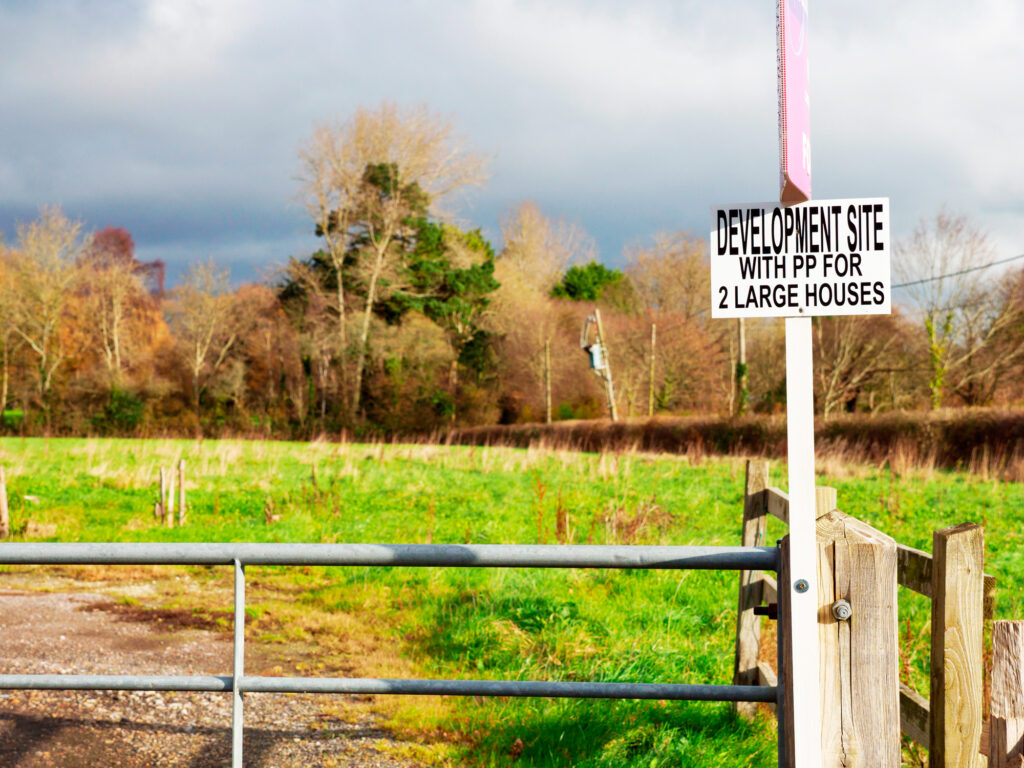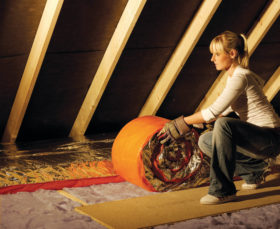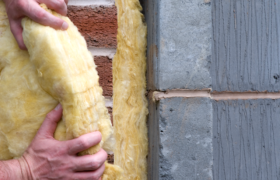
Use code BUILD for 20% off
Book here!
Use code BUILD for 20% off
Book here!Whether you’re renovating your current property or building the home of your dreams, choosing the right boiler is vital. At this time of year, you don’t want to be left in the cold with the wrong heating system.
The amount of floor area you have is the first major factor to consider in determining the size of the boiler you need – the larger the property, the larger the boiler. The other major factor is how many bathrooms you have.
By law, all new and replacement gas and oil-fired domestic boilers (with a few exceptions) must be condensing boilers. There are three types: combination (aka combi); regular (traditional, heat only or conventional boilers) which unlike combis heat a store of hot water in a cylinder; and system, which are similar to regular boilers but don’t need an expansion tank and have the heating and hot water components built in, making installation quicker and easier.
“Larger homes with more bathrooms may require instantaneous hot water from many outlets at the same time,” says Martyn Bridges from boiler manufacturer Worcester, Bosch Group. “In this case, you would probably need a hot water cylinder to store enough hot water, so a regular or system boiler would be most suitable.
“A smaller home with just one bathroom, or perhaps a bathroom and an en suite shower room, would have less need for hot water from different outlets at the same time, so a condensing combi, which heats water on demand, would be suitable.”
“Heat loss from a property is also a major factor in determining the size of boiler is required,” says James Parkinson from Vaillant, another boiler manufacturer. “A poorly insulated property will lose heat more quickly than a modern, well-insulated one, so a larger boiler is required to adequately heat the property faster than the heat is lost.
“The property’s fabric needs to be considered, including wall and roof insulation, type of windows and whether the property is detached, terraced or a flat. All these factors determine its heat loss and help to define what size of heat input is required from a boiler.”
Combis now account for more than half of all new domestic boilers installed in Britain each year, as people like the convenience of almost instant hot water. The other good thing about a combi is that you only need the boiler itself.
Jocelynne Rowan from boiler manufacturer Baxi explains: “If you don’t have much room for water storage cylinders or tanks in the loft, a combi takes up much less space than other boilers. However, homes that require high flow rates, like those with power showers or a high demand for hot water, may find a system or regular boiler, with a hot water storage cylinder, more suitable.”
A common query is whether your type of heating affects the choice of boiler. “It’s a question of how big the property is and what level of heating and hot water is required to meet the household’s needs,” says Worcester’s Martyn. “The type of heating controls either already installed or chosen will also have a big impact on the compatibility of a boiler and, say, wet underfloor heating.”
“The method can have an influence on the heat output of the boiler required,” says James. “Radiators generally need a flow temperature of 60°C, whereas underfloor installations only require flow up to 45°C. Houses heated by radiators will therefore generally need larger boilers than those with underfloor heating.”
If you’re building your home, you’ll choose the boiler and heating system together (with the help of a qualified installer), but if you’re simply replacing an existing boiler, you will, of course, need one that’s compatible with the system you already have. You’ll also need to upgrade your heating controls to fit a timer, room thermostat and thermostatic radiator valves to comply with Building Regulations (see below).
There are other considerations, too, when replacing an old boiler. Worcester recommends that you flush your heating system be flushed, which removes debris and sludge in the pipes, and treat it with an inhibitor. This will prolong the life of the boiler and its components and save you money. System efficiency can be 6-10 per cent less on an unflushed system, meaning 6-10 per cent of your gas or oil bill is wasted.
James from Vaillant advises considering the integrity of the components of the old system, and ask the installer the right questions. “For example, if the old system was gravity fed and the replacement boiler is pressurised, will the old components be capable of withstanding an increase in pressure? Are they corroded?
“Consideration needs to be made for siting the boiler, so the condensate can be fed into a drain, and for the correct fluing of the boiler,” says Jocelynne. “It is also worth checking the compatibility of any existing controls.”
Microgeneration equipment, such as solar panels and heat pumps, is becoming increasingly popular with both self-builders and other homeowners, especially in this climate of constant fuel price rises, and there are some good ways to combine a boiler with other heating equipment.
Worcester’s Martyn explains: “In the case of solar water-heating systems, Worcester’s Greenskies solar panels work with a boiler to provide a home’s hot water. The heat captured by the solar panels is pumped directly into a hot water cylinder.”
Solar panels harness the sun’s rays even on cloudy days, but they usually only provide about a third of a home’s hot water needs, so you need a boiler as well. The boiler will also heat your home, if required, although a combi is rarely an option because a hot water cylinder is needed to store the water heated by the solar panels during the day so it can be used later.
Martyn continues: “Microgeneration technologies such as Worcester’s Greenstore ground source heat pumps and Greensource air source heat pumps can supply a home’s heating and hot water requirements without the need for a boiler, or any other non-renewable fuel source at all.”
Heat pumps take energy from the ground, air or water and use it to satisfy your home’s heating and also, in some cases, hot water needs. And while you can do without one, a boiler can be used with a heat pump to provide what the pump doesn’t.
Around 1.7 million homes in the UK, most of them rural, don’t have mains gas. Instead, they rely on liquid petroleum gas (LPG), oil, electricity, biomass (usually wood chip, wood pellet and log burners), solid fuel (coal, coke and smokeless fuels, etc.) or microgeneration equipment for their heating and hot water. Oil-fired or LPG-compatible boilers, require a tank (usually located in the garden) to store the fuel.
It’s also possible to combine some of these systems. “For new homes with no mains gas, which are well-insulated and have underfloor heating, a ground source heat pump and solar hot water system is a good combination,” says Rowan.
Wherever you live, and whatever you think your heating and boiler options are, don’t make any decisions without consulting a CORGI (gas), HETAS (solid fuel) or OFTEC (oil) registered installer. They’re trained to assess your home and lifestyle and should ensure that you get a boiler that’s right for you.
Part L of Building Regulations governs, among other things, heating system controls and boilers. Since April 2005, all new and replacement gas and oil-fired domestic boilers must be condensing boilers of SEDBUK band A or B, ensuring a high efficiency rating. However there are exceptions, such as if the pipework in an older property isn’t compatible with a condensing system. In this case, an assessment must be carried out to see if a non-condensing boiler would be acceptable. Completed assessment forms should be kept by the homeowner in case they sell the property at a later date.
Building Regulations also state that the boiler controls should be brought up to a certain standard (principally a timer, room thermostat and thermostatic radiator valves) and stipulate the minimum level of control required.
Work to install a new boiler (or a cooker that also supplies central heating, such as an Aga) needs Building Regulations approval. See www.planningportal.gov.uk for more information.
Main image: This diagram from Worcester, Bosch Group shows a typical combi boiler setup


Comments are closed.